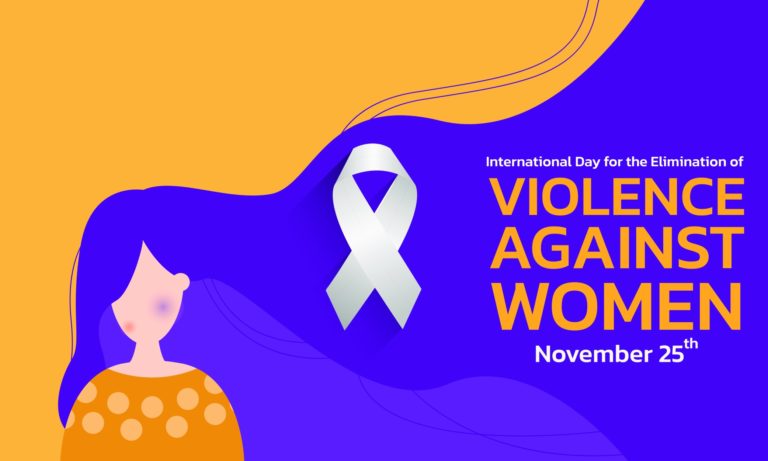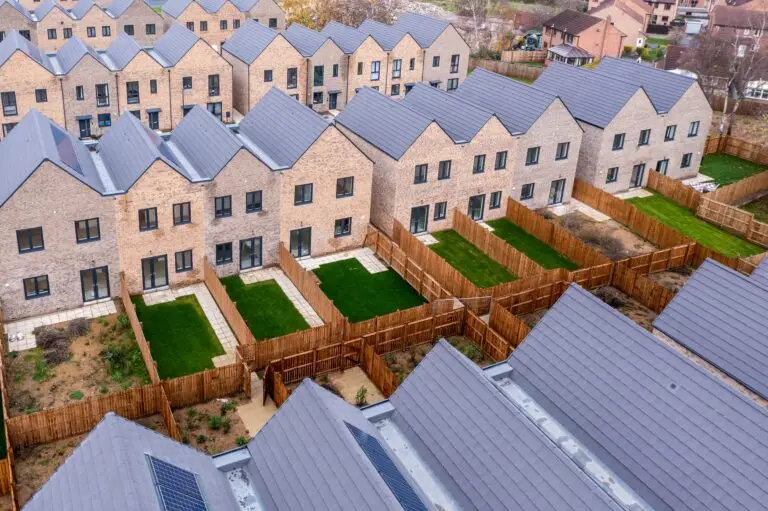This Thursday, 25th November, marks two important initiatives aimed at tackling gender inequality: White Ribbon Day, which challenges men to take action and make a direct stand against male violence, and the UN’s International Day or the Elimination of Violence Against Women. Both movements call for sixteen subsequent days of activism, concluding on the 10th December with International Human Rights Day.
2021 has tragically seen a wave of high-profile cases of violence against women, which have dominated headlines and fuelled widespread horror, grief and anger globally. The case of Sarah Everard, who was kidnapped and murdered by a serving Metropolitan police officer in March as she walked home, triggered a rallying national cry for calls to action in addressing systemic, pervasive violence against women in Britain. Since Sarah’s death, 81 women, including Sabina Nessa, who was walking to meet a friend only five minutes from her home, have tragically lost their lives to suspected male violence.
Violence against women is a long-standing problem which impacts every country around the world. Globally, an estimated 736 million women– almost one in three – have been subject to sexual violence at least once in their lifetime, and 97 per cent have experienced sexual harassment.
Over the past 18 months, during multiple lockdowns to combat the coronavirus pandemic, violence against women has intensified to such an extent that the UN coined the term ‘Shadow Pandemic’ to describe the phenomenon. Whilst many agree lockdowns were a ‘necessary evil’ to curb the spread of Covid-19, social restrictions have had a devastating impact on women living with the risk of gender-based violence. Being confined with an abuser, unable to leave the house or access support, has resulted in skyrocketing calls to domestic abuse hotlines. In the UK, there was a 65 per cent increase in calls to the National Domestic Abuse Helpline in the first three months of lockdown alone.
More generally, women and girls have reported feeling less safe due to the pandemic. One of the largest children’s charities in the world, Plan International UK, recently found 28 per cent of girls feel less safe outside during lockdowns, of which 52 per cent attributed to a lack of people around to help if something happened to them. Additionally, 20 per cent of girls experienced street harassment during lockdown, 18 per cent of whom felt harassment had got worse during lockdowns.
This surge in violence left many to question what new procedures the Metropolitan Police, home to the capital’s police force and the largest in the UK by a significant margin, would be implementing to not only keep women safe, but also address its own internal ‘deeply toxic’ culture embedded within the force . This question was particularly important following the string of shocking instances that emerged following Everard’s death, including the police WhatsApp group in which Met officers shared “inappropriate images depicting violence against women” involving graphic details of Sarah’s case.
Although there has certainly been an acknowledgement of the need to sit up and take notice, for example through this week’s announcement that violent crimes against women will receive the same status as terrorist attacks, it’s clear there is still much more to do. For example, ministers could start making catcalling a hate crime, or investigate institutionalised sexism in the police. This paints a concerning picture for women across the UK, particularly as the nights are getting darker earlier and potentially facing tighter restrictions the closer we get to December and New Year’s.
Despite this bleak landscape, violence against women is preventable. We can all play a part together with local communities, workplaces, businesses and schools to help combat the spread of gendered violence. From more radical initiatives such as New Zealand’s recently introduced statutory right to 10 days’ paid leave for workers experiencing domestic violence, through to confidentially signposting resources/support services or funding anti-bias training, employers and workplaces can deploy varied tactics to help unpick the issue. Even moves as straightforward as giving employees the space they need to discuss the news or issues that cause them distress and anger can be effective in helping workers, particularly women or non-binary people, to express their frustrations and feel less isolated.
Workplaces can also be more creative in their approach. At PLMR, we launched a sponsored walk to help raise funds for the End Violence Against Women Coalition, a leading coalition of 113 specialist women’s support services, researches, activists, NGOs and survivors working to end violence against women and girls in all its forms. Some of its members include the Centre for Women’s Justice, Rape Crisis, Refuge, Women’s Aid, Amnesty International UK, Fawcett Society, Girlguiding, NASUWT and Safe Lives. Not only did walking hold particular poignance to commemorate both Sarah and Sabina’s cases, but it also allowed us to channel our distress and anger into something positive and meaningful.
Through this initiative, we collectively walked a whopping 1,454,461 steps, approximately 735 miles or the distance from London to Milan! We also raised £2,021, which PLMR is very generously match funding, taking our total to £4,042.
Although the seemingly endless news cycle around violence against women has been incredibly harrowing to process, it’s vital that we acknowledge the power and autonomy we all have to affect change – even on a small scale. Awareness days, such as White Ribbon Day or the UN’s, provide excellent opportunities to galvanise momentum and come together.




